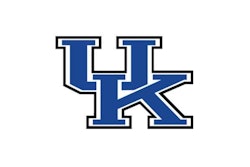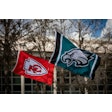Copyright 2017 Richmond Newspapers, Inc.
All Rights Reserved
Richmond Times Dispatch (Virginia)
When I learned that the unbeaten Atlee Little League softball team was suspended from the Junior League World Series over a social media post, my first thought was: Whoa, that's harsh!
After all, aren't kids age 12 through 15 allowed to make a mistake?
As it turns out, the glare of the national spotlight can be unforgiving.
The team was disqualified after a player posted a photo on Snapchat showing several members of the Atlee team extending their middle fingers in an obscene gesture intended for the team from Kirkland, Wash.
The contest between Atlee and Kirkland, the host team, had been chippy. A Kirkland player and coach were ejected for stealing signals in a game Atlee won 1-0. When Atlee manager Scott Currie learned of the Snapchat post, it was immediately deleted. To his credit, he arranged for his team to deliver an apology in person to the Kirkland players.
All good, right?
But social media posts tend to take on a life of their own. When Little League honchos got word of the post, they ruled Atlee in violation of league policies regarding unsportsmanlike conduct.
The subsequent disqualification had to hurt, and I feel for the team.
Unfortunately, that wasn't the end of it. But it's difficult to see how this could have ended differently.
Word of the offensive photo no doubt would have gotten out via screenshots, with everyone involved looking like enablers of inappropriate behavior if it had gone unpunished.
Critics say the punishment doesn't fit the crime. But what other penalty could have been meted out? Suspending the six girls in the photo — even for a few innings — would have decimated the team and rendered the title game a farce.
What's called for now is less debate over the merits of the disqualification and more reflection on how this happened, and how to prevent it.
"This incident shows once again that teenagers cannot just be handed a smartphone with access to social media apps without further instruction," said Marcus Messner, associate professor at the Richard T. Robertson School of Media and Culture at Virginia Commonwealth University.
"There is a great need for education, especially for that age group, on how to use social media and what the consequences can be of improper use. Once something is posted on social media, it becomes almost impossible to make it disappear. That's also true for a platform like Snapchat, which erases posts automatically after a period of time.
"Sports teams and parents should take a proactive approach to social media education as many schools already do today," Messner said. "It will benefit children and teenagers greatly when they grow up to become adults and their social media misbehavior can have more severe consequences than being disqualified from a sports event."
Being disqualified one game short of a title is painful. But I suspect the team would trade a title game loss for this unwanted national attention.
Technology is a blessing and a curse that outpaces our ability to harness it responsibly. If adults act out on social media, should we expect greater impulse control from 12-year-old kids?
The stakes are greater than you might think. Social media beefs have been cited as a contributing factor in the substantial violence among Richmond's juveniles. Of course, not every social media slight ends with gunshots. But cyberbullying produces a psychic toll that can lead to depression and suicide.
No one, least of all young adolescents, should be judged by one irresponsible moment.
"We are deeply disappointed this social media post did not reflect the core values of Little League International or Atlee Little League," Jamie Batten, the president of Atlee Little League, said in a statement released Saturday night.
"We expect Little League International will take the time to fully investigate the matter, and we will comply with this investigation by providing all information about unpleasant interactions including the social media post and the time leading up to that event — not all of which were on the part of those on the Atlee softball team.
"We desire to protect all youth who are recipients of inappropriate behavior both on and off the field, as we take very seriously our charge to impart the value of good sportsmanship."
Batten concluded by saying, "As all young athletes are trained to do, they will brush themselves off after a loss, and try again — after having learned a most valuable lesson."
We hope. But that lesson is undermined by an argument that essentially says, "Well, they started it."
That reasoning strays dangerously close to justification. Sportsmanship isn't something we practice solely when it's reciprocated in kind. Sports, as well as life, often requires us to turn the other cheek. Any football fan knows that the referee frequently misses the individual who instigates and flags the one who retaliates.
It's not fair, but it's reality.
Instead of rehashing the unfortunate outcome in Kirkland, we should be focusing on the lessons:
Inappropriate social media posts can cost an individual the job he or she has, or one they're applying for. Today's post can have a detrimental effect tomorrow.
The actions of one or a few can undermine the team, whether we're talking softball or a work organization.
Social media invective is a scattershot form of communication that may injure the intended target, but often inflicts collateral damage or backfires on the sender.
And finally, actions have consequences.
The more the elders go to bat for the youngsters here, the less the kids will buy into the concept of accountability.
Winning at life is more important than winning at softball. Instead of replaying events beyond salvaging, we should build on this lesson of the potential pitfalls of social media.
More is at stake than a game.
[email protected](804) 649-6815Twitter: @RTDMPW
Read More of Today's AB Headlines
Subscribe to Our Daily E-Newsletter
Terms and Conditions Privacy Policy



































